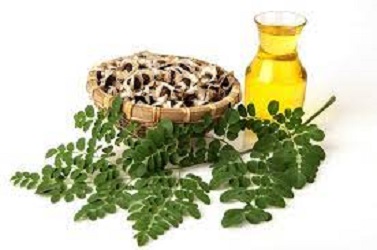Moringa Leaves: Miracle Plant for 300 Diseases
Moringa Leaves: Miracle Plant That Can Cure 300 Diseases

Only a few plants have many edible sections. Moringa is a “Miracle Tree” or “Wonder Tree.
” Horseradish, ben, and drumstick trees are all names for the Moringa tree, with Moringa oleifera as the scientific name
Please Read >>> Can-moringa-cure-sti-moringa-seed-gonorrhea
Its drumstick fruit/seed pod is a popular Indian veggie. However, this plant’s leaves, seeds, blossoms, bark, and roots are edible and utilized in traditional Ayurveda and Siddha herbal treatments.
The Moringa tree leaves are very nourishing and therapeutic. As a supplement, they’re easy to take! Oil, leaf powder, and extract of Moringa provide health benefits.
Moringa Oil
Moringa seed oil provides nutritional and health advantages. It’s also a cosmetic and industrial lubricant.
Moringa Leaf Powder
The leaf powder is a superfood and may be used as powders, pills, capsules, and concentrated leaf extract.
Health Benefits of Moringa Leaves ~
- Vitamins and Mineral rich
Vitamins A, C, B1, B2, B3, B6, and Folate are found in moringa leaves. They’re also high in magnesium, iron, calcium, phosphorus, and zinc.
- Rich in Amino Acids
Amino acids, protein building blocks, are abundant in moringa leaves. They contain 18 amino acids, each of which benefits us.
- Reduce Inflammation
Injury and discomfort cause inflammation. Moringa leaves contain isothiocyanates, which reduce inflammation.
- Rich in Antioxidants
Moringa leaves defend against free radical damage due to their antioxidant qualities. Type 2 diabetes, heart disease, and Alzheimer’s are caused by free radical damage.
- Reduce Blood Sugar Levels
High blood sugar levels cause diabetes. Heart and organ damage may result from diabetes.
Other Amazing moringa leaf health benefits include:
- Cholesterol reduction
- Protects Liver
- Arsenic Toxicity Protection
- Healthy Stomach
- Improves Bone Health
- A Sanitizer
- Improve Breastfeeding
- Good for Skin and Hair
- Weight Management
- Nervous System Benefits
- Detoxifying
Healing Properties of Moringa ~ an overview
India, Pakistan, Bangladesh, and Afghanistan are home to moringa. Tropical regions cultivate it. Leaves, bark, flowers, fruit, seeds, and roots are used in medicine.
Moringa is taken by mouth for “tired blood” (anemia), arthritis and other joint pain (rheumatism), asthma, cancer, constipation, diabetes, diarrhea, seizures, stomach pain, stomach and intestinal ulcers, intestinal spasms, headache, heart problems, high blood pressure, kidney stones, menopause symptoms, thyroid disorders, and infections.
Moringa is also used orally to decrease edema, avoid spasms, stimulate sex desire, prevent pregnancy, strengthen the immune system, and promote breast milk supply.
It’s a nutritional supplement or tonic for some. “Water pill” (diuretic) usage is also possible.
As an astringent or germ-killer, moringa may be applied straight to the skin. Abscesses, athlete’s foot, dandruff, gum disease (gingivitis), snakebites, warts, and wounds are treated with it.
Moringa seed oil is used in food, perfume, hair care, and machine lubrication.
The plant, Moringa is a global food source. Moringa is utilized in feeding programs in India and Africa to prevent hunger since it can be cultivated inexpensively and the dried leaves retain vitamins and minerals.
Drumsticks (immature green pods) are cooked like green beans, whereas more mature pods’ seeds are served like peas or roasted like nuts. Cooked like spinach, the leaves are dried and powdered for use as a seasoning.
The seed cake left after oil extraction is used to fertilize, filter well water and remove salt from saltwater.
How does it work?
Vitamins, minerals, and proteins are in moringa. As an antioxidant, it protects cells. Inflammation and discomfort may be reduced by moringa.
Moringa in ancient Egyptian civilization
Moringa has been used for health in many cultures. As the Holy Lotus flower, ancient Egyptians were fascinated by it.
Ancient Egyptians received exaltation, energy restoration, and vigor from Moringa oil.
It was used to alleviate tooth pain, headaches, stomach issues, skin hydration, wrinkles, and water purification.
Moringa is an integrated pharmacy at your home
Daily Moringa herb use maintains health and prevents illness.
Moringa’s antifungal, antibacterial, antimalarial, antiprotozoal, and antihelminthic qualities make it a wonder plant.
Moringa Leaves Tea helps with >>>>
Osteoporosis, especially in women over 45 years old
- Treatment of Anaemia in all its forms
- Regulation of blood sugar
- Prevention of gout and arthritis
- Reduce appetite and accelerate digestion
- Helps lose weight
- Contributes to milk production for breastfeeding women
- Treating sexual vulnerability and increasing fertility in men and women as it contains zinc & phosphorus
- The perfect treatment for allergy and asthma
- Full support for hair and skin
Nutritional Value of Moringa
- 100 grams of Moringa contains 9.40 grams of protein, 51.7 grams of vitamin C, 4 milligrams of iron, 378 micrograms of vitamin A, 8.28 grams of carbohydrate, 2 grams of fiber, and 185 milligrams of calcium
How to use Moringa?
To get the most out of it, consume Moringa powder like tea or mix it with other beverages like natural juices.
The daily dosage of moringa powder should not exceed half a spoon to a full spoon to prevent side effects.
Ways to consume Moringa
The fresh leaves and blooms may be eaten straight or added to smoothies, soups, and salads.
Consumption of moringa seed oil is not advised. It’s used topically.
The oil’s vitamins and antioxidants make it a great skin cleanser, moisturizer, wound healer, and anti-ager. Hair treatments and health utilize it too.
A long list of diseases that moringa can cure hypothetically.
List of 300 Diseases that Moringa Cures
- Anemia
- Asthma
- Arthritis
- Cancer
- Diabetes
- High Cholesterol
- High Blood Pressure
- Inflammation
- Joint Pain
- Malaria
- Malnutrition
- Menstrual Cramps
- Ulcers
- Tuberculosis
- Thyroid Disorders
- Fungal Infections
- Viral Infections
- Acne
- Bacterial Infections
- Eczema
- Psoriasis
- Rosacea
- Wrinkles
- Skin Rashes
- Constipation
- Diarrhea
- Nausea
- Vomiting
- Headaches
- Migraines
- Depression
- Insomnia
- Sexual Dysfunction
- Infertility
- Menopause Symptoms
- Hot Flashes
- Anxiety
- Night Sweats
- Osteoporosis
- Tooth Decay
- Gingivitis
- Heart Disease
- Stroke
- Liver Disease
- Kidney Disease
- Alzheimer’s Disease
- Parkinson’s Disease
- Multiple Sclerosis
- ALS
- Lupus
- Fibromyalgia
- Chronic Fatigue Syndrome
- Lyme Disease
- Rheumatoid Arthritis
- Gout
- Inflammatory Bowel Disease
- Crohn’s Disease
- Colitis
- Hemorrhoids
- Varic
- Asthma
- Bronchitis
- Pneumonia
- Sinusitis
- Allergies
- Colds
- Flu
- Sore Throat
- Strep Throat
- Tonsillitis
- Ear Infections
- Pink Eye
- Conjunctivitis
- Glaucoma
- Cataracts
- Macular Degeneration
- Diabetes Complications
- Wound Healing
- Burns
- Boils
- Staph Infections
- Ringworm
- Athlete’s Foot
- Jock Itch
- Dandruff
- Hair Loss
- Premature Aging
- Menstrual Irregularities
- Endometriosis
- Fibroids
- Polycystic Ovary Syndrome (PCOS)
- Prostate Problems
- Enlarged Prostate
- Prostatitis
- Urinary Tract Infections
- Kidney Stones
- Bladder Infections
- Interstitial Cystitis
- Hemorrhagic Cystitis
- Leukemia
- Breast Cancer
- Colon Cancer
- Lung Cancer
- Prostate Cancer
- Ovarian Cancer
- Brain Cancer
- Pancreatic Cancer
- Liver Cancer
- Bladder Cancer
- Thyroid Cancer
- Melanoma
- Non-Hodgkin’s Lymphoma
- Hodgkin’s Lymphoma
- Cervical Cancer
- Gastric Cancer
- Esophageal Cancer
- Testicular Cancer
- Oral Cancer
- Bone Cancer
- Sarcoma
- Alzheimer’s Disease
- Parkinson’s Disease
- Multiple Sclerosis
- ALS
- Huntington’s Disease
- Autism
- Attention Deficit Hyperactivity Disorder (ADHD)
- Post-Traumatic Stress Disorder (PTSD)
- Schizophrenia
- Bipolar Disorder
- Obsessive-Compulsive Disorder (OCD)
- Depression
- Anxiety
- Panic Attacks
- Insomnia
- Restless Leg Syndrome
- Sleep Apnea
- Tourette’s Syndrome
- Chronic Fatigue Syndrome
- Fibromyalgia
- Cardiovascular Disease
- High Blood Pressure
- High Cholesterol
- Atherosclerosis
- Heart Failure
- Arrhythmia
- Coronary Artery Disease
- Stroke
- Peripheral Artery Disease
- Varicose Veins
- Rheumatoid Arthritis
- Osteoarthritis
- Gout
- Lupus
- Psoriasis
- Eczema
- Acne
- Rosacea
- Scleroderma
- Raynaud’s Disease
- Allergies
- Asthma
- Chronic Obstructive Pulmonary Disease (COPD)
- Bronchitis
- Sinusitis
- Rhinitis
- Hay Fever
- Pneumonia
- Tuberculosis
- Cystic Fibrosis
- Digestive Disorders
- Irritable Bowel Syndrome (IBS)
- Inflammatory Bowel Disease (IBD)
- Crohn’s Disease
- Ulcerative Colitis
- Gastroesophageal Reflux Disease (GER
- Peptic Ulcers
- Gastritis
- Gallstones
- Pancreatitis
- Hepatitis
- Cirrhosis
- Diverticulitis
- Hemorrhoids
- Anal Fissures
- Constipation
- Diarrhea
- Food Poisoning
- Giardiasis
- Helicobacter Pylori Infection
- Kidney Disease
- Nephritis
- Nephrosis
- Pyelonephritis
- Glomerulonephritis
- Polycystic Kidney Disease
- Renal Failure
- Anemia
- Iron Deficiency Anemia
- Sickle Cell Anemia
- Thalassemia
- Thyroid Disorders
- Hyperthyroidism
- Hypothyroidism
- Autoimmune Diseases
- Lupus
- Multiple Sclerosis
- Rheumatoid Arthritis
- Scleroderma
- Skin Infections
- Impetigo
- Cellulitis
- Folliculitis
- Carbuncles
- Abscesses
- MRSA
- Dental Problems
- Tooth Decay
- Gum Disease
- Halitosis
- Oral Thrush
- Eye Problems
- Conjunctivitis
- Cataracts
- Glaucoma
- Macular Degeneration
- Retinopathy
- Sexual Dysfunction
- Erectile Dysfunction
- Premature Ejaculation
- Low Libido
- Infertility
- Substance Abuse
- Alcoholism
- Drug Addiction
- Metabolic Disorders
- Obesity
- Metabolic Syndrome
- Type 2 Diabetes
- Other Diseases
- Chronic Pain
- Fibromyalgia
- Chronic Fatigue Syndrome
- Lyme Disease
- Epstein-Barr Virus
- Candida Overgrowth
- Irritable Bowel Syndrome
- Crohn’s Disease
- Ulcerative Colitis
- Pancreatic Cancer
- Lung Cancer
- Liver Cancer
- Prostate Cancer
- Breast Cancer
- Ovarian Cancer
- Cervical Cancer
- Endometrial Cancer
- Bladder Cancer
- Kidney Cancer
- Leukemia
- Lymphoma
- Myeloma
- Sarcoma
- Brain Tumors
- Skin Cancer
- Mesothelioma
- Alzheimer’s Disease
- Parkinson’s Disease
- Huntington’s Disease
- Multiple Myeloma
- Amyloidosis
- Sarcoidosis
- Addison’s Disease
- Cushing’s Syndrome
- Hyperparathyroidism
- Hypoparathyroidism
- Acromegaly
- Gigantism
- Pituitary Tumors
- Meniere’s Disease
- Vertigo
- Tinnitus
- Schizophrenia
- Bipolar Disorder
- Major Depressive Disorder
- Anxiety Disorders
- Obsessive-Compulsive Disorder
- Post-Traumatic Stress Disorder
- Attention Deficit Hyperactivity Disorder
- Autism Spectrum Disorder
- Down Syndrome
- Turner Syndrome
- Klinefelter Syndrome
- Polycystic Ovary Syndrome
- Fibroids
- Endometriosis
- Polyps
- Hemophilia
- Von Willebrand Disease
- Deep Vein Thrombosis
Please Note!
The list of 300 ailments that Moringa heals is not scientifically proven, and further study is required to prove its efficacy.
Before taking Moringa to treat any health issue, see a doctor. Moringa may help these ailments. Moringa may enhance your health and well-being, but it is not a cure. Consult a doctor before beginning any new supplement or therapy.

The Bottom Line
Moringa is an interesting and important plant that might improve people’s health.
Moringa should be part of your wellness regimen whether you have a particular health condition or want to improve your general health.
List of diseases you can cure with moringa Seeds
- Hyperthyroidism
- Crohn’s disease
- Gout
- Cramps
- Epilepsy
- Herpes simplex virus
- Arthritis
- Rheumatism
- STP
The disease you can cure with moringa Root Bark
Root bark acts as an anti-ulcer, anti-inflammatory, and heart-stimulating agent.
Morphine, calcium, magnesium, and sodium are produced.
The disease you can with moringa Flower
Hypocholesterolemic, anti-arthritic moringa flowers heal colds and urinary issues.
The disease you can cure with moringa Pods
Moringa pods relieve diarrhea, liver, spleen, and joint discomfort.
Note
Moringa is said to offer numerous benefits, but science doesn’t believe it can accomplish any of them. Always visit your doctor when you’re sick.
Side effects
Eating moringa leaves, fruit, and seeds are likely safe. Short-term oral use of moringa leaf and seed may be safe.
Moringa leaf products have been proven safe for up to 90 days. Moringa seed products have proven safe for 3 weeks.
Oral moringa root and root extracts may be unsafe when taken by mouth. Roots contain poisonous spiro chin.
What are 300 diseases cured by moringa?
Moringa is an integrated pharmacy at your home
- Osteoporosis in women over 45
- Anaemia treatment
- Sugar Control
- Gout and arthritis prevention
- Reduce appetite and speed digestion
- Weight loss
- Aids lactation.
Which diseases does moringa cure?
Anti-diabetic effects;
Moringa cures Type 1 and Type 2 diabetes. Type 1 diabetes is caused by insulin deficiency, which keeps blood glucose levels normal. Insulin-resistant diabetes is type 2.
What are the benefits of drinking moringa water?
Protection Against Chronic Disease
Moringa leaves contain chemicals that fight chronic illness. Polyphenols, tannins, saponins, etc. These chemicals treat chronic inflammation, heart disease, liver damage, and diabetes.
Moringa for Fungus? Can moringa cure a fungal infection?
Moringa oleifera possesses antifungal, antiviral, antibacterial, and antioxidant chemicals.
How quickly can fungal infection be treated?
OTC antifungal creams; stronger, faster-acting prescriptions
Oral drugs for severe fungal infections.
Can Moringa cure sexually transmitted diseases ~ Does Moringa help sexually?
This moringa plant contains antioxidants and vital natural substances that may alleviate stress and boost sexual vigor.
Its aphrodisiac effects may raise testosterone, libido, and sexual vigor.
Moringa for toilet infections? Can moringa cure toilet infection?
Moringa Fights common infections. Moringa contains antibacterial and antifungal, fighting infections. It fights skin-infecting fungus and blood- and urinary-tract-infecting bacteria.
Side effects of moringa ~ Moringa side effects may include:
- Moringa bark causes uterine contractions and lowers blood pressure and pulse rate due to alkaloids.
- Cell mutations are triggered by a chemical isolated from roasted moringa seeds.
- Interfering with fertility.
- Upset stomach, gas/diarrhea due to laxative properties.
What happens when you drink moringa daily?
Moringa may lower cholesterol and blood sugar levels. For nutrient-deficient persons, moringa leaves may be eaten daily.
Moringa treats 300 diseases—can it treat fungal infections?
Moringa oleifera possesses antifungal, antiviral, antibacterial, and antioxidant chemicals.
Can moringa help with conception?
Moringa leaf, often known as the miracle tree, boosts fertility in both men and women due to its high vitamin (A, C, B, E, K), mineral (Calcium, potassium, iron, manganese), protein, amino acid, and detoxifying properties.
What diseases can moringa cure?
Moringa cures Type 1 and Type 2 diabetes. Type 1 diabetes is caused by insulin deficiency, which keeps blood glucose levels normal. Insulin-resistant diabetes is type 2.
Moringa for women: Moringa benefits for women
Top 5 Benefits of Moringa for Women
Moringa has lots of vitamins and iron, and it can improve lactation, libido, weight management, hormone balance, bone health, and skin health.
How to use Moringa to treat infection ~ how is moringa used to treat infection?
Moringa is used as an astringent or germ-killer on the skin.
It also treats abscesses, athlete’s foot, dandruff, gingivitis, snakebites, warts, and wounds.
What moringa can cure
Moringa is taken orally for anemia, arthritis and other joint pain (rheumatism), asthma, cancer, constipation, diabetes, diarrhea, seizures, stomach pain, stomach and intestinal ulcers, intestinal spasms, headache, heart problems, high blood pressure, kidney stones, symptoms of menopause, thyroid disorders, and

